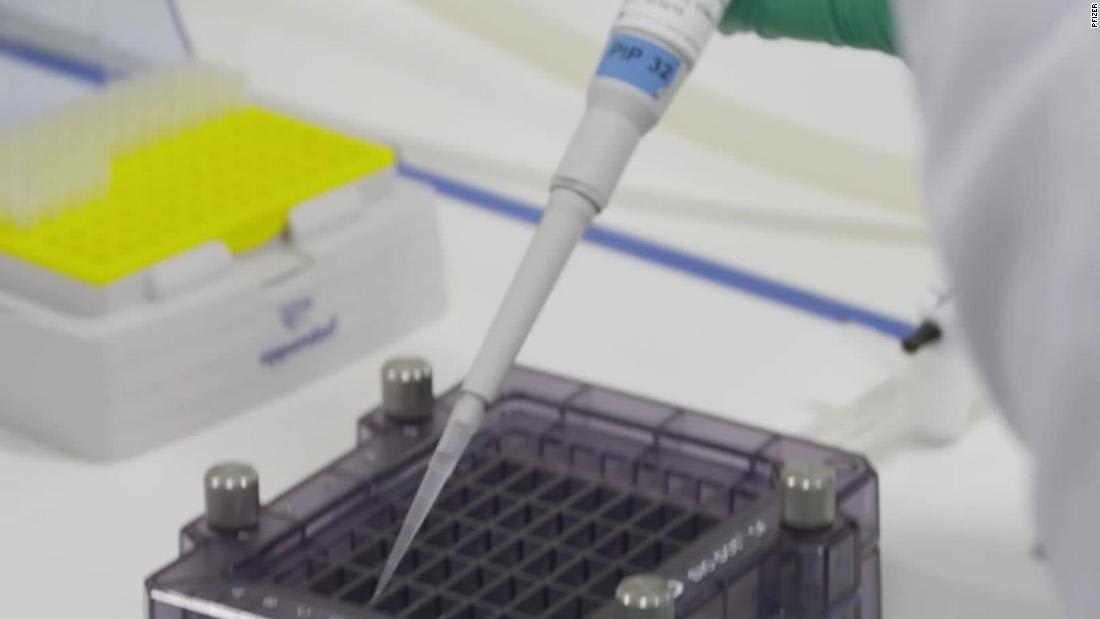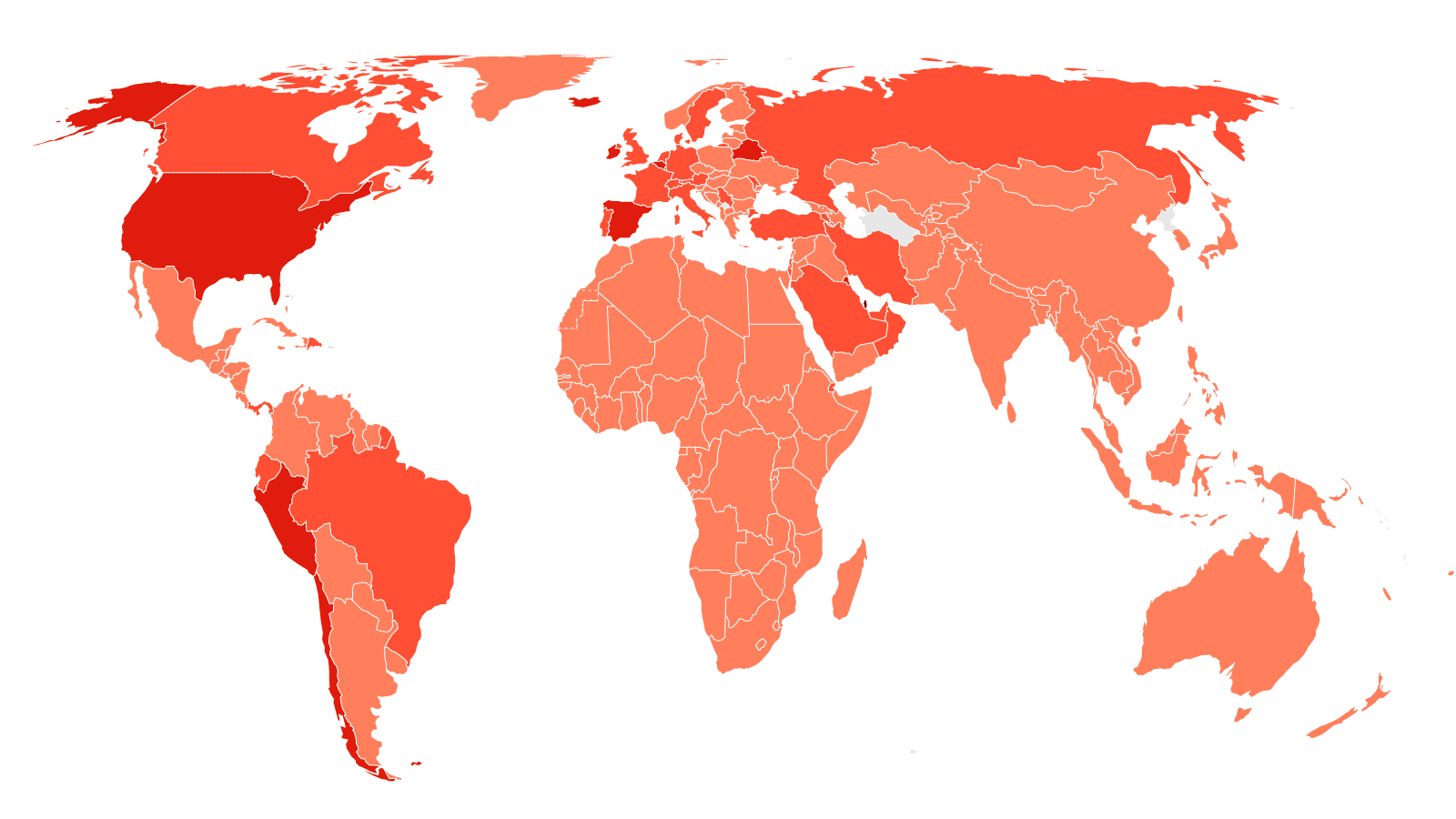Pfizer proposes expanding Covid-19 vaccine trial to include more diversity
From CNN's Dakin Andone
The race for a coronavirus vaccine shows no signs of slowing as more companies move their vaccine candidates through clinical trials, growing closer to determining which will be considered safe and effective.
One such candidate is in development by the American pharmaceutical company Pfizer, which announced along with its German partner BioNTech on Saturday they proposed expanding Phase 3 clinical trials to include 44,000 participants and more diverse patient populations, including people as young as 16.
That's up from the initial plan of 30,000 participants, a benchmark they plan to meet next week, according to a news release.
Diversity matters: The proposal, which would need approval by the Food and Drug Administration, would allow the companies to collect more data on the safety and efficacy of the vaccine candidate while diversifying the pool of participants.
"But right now we are not bad. Actually, we have a population that globally only 60% are Caucasians, 40%, approximately, minorities," he said.
Read the full story:
New Zealand extends coronavirus restrictions upon discovery of one new case
From CNN's Isaac Yee and Angus Watson
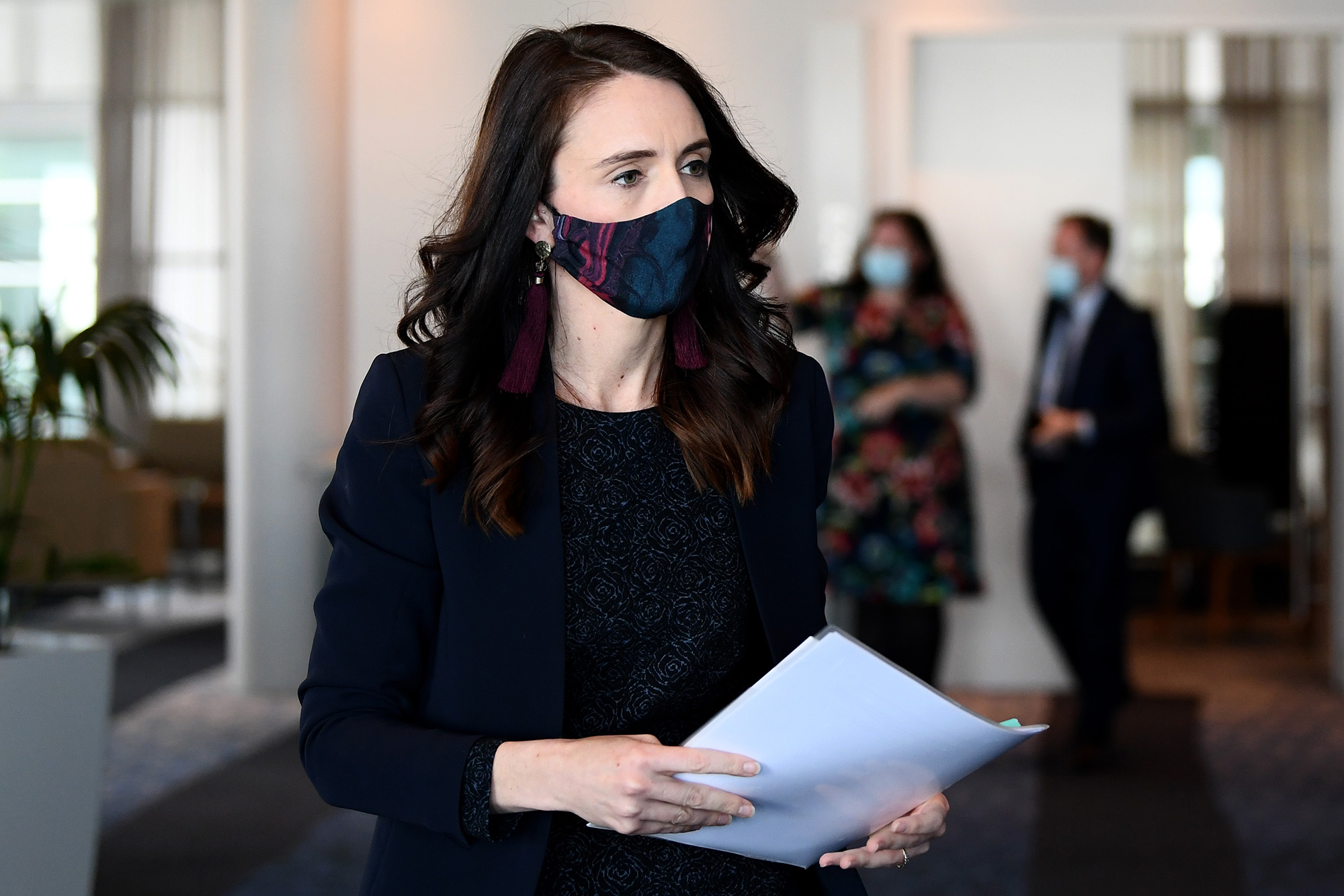 New Zealand Prime Minister Jacinda Ardern arrives to speak at the Business NZ Election Conference on September 11, in Auckland, New Zealand. Hannah Peters/Getty Images
New Zealand Prime Minister Jacinda Ardern arrives to speak at the Business NZ Election Conference on September 11, in Auckland, New Zealand. Hannah Peters/Getty ImagesNew Zealand will extend its current coronavirus restrictions for another week as the country reported one new case on Monday.
“For Auckland, cabinet will review the current level 2.5 settings at our meeting on Monday the 21st of September with a view to increase gathering limits for Auckland if we are in a similar position for containing the cluster,” she said.
If that change was agreed, the new measures would come into effect on September 23, according to Ardern.
“As we know more cases will emerge from this cluster's tail, these cases can still continue to pose risks,” she warned.
Under the extended restrictions in Auckland, social gatherings are limited to 10 people while businesses can open as long as they follow social distancing guidelines.
Ardern said the cabinet had agreed “in principle” that the rest of New Zealand outside of Auckland will move to level 1 restrictions at 11:59 p.m. on September 21, as long as cases continue to “track as they are and maintaining the containment we have seen.”
She also praised New Zealand’s testing efforts. “Over 100,000 tests have taken place nationwide that have not shown any spread of the virus to date in other parts of New Zealand, despite the resumption of inter-regional travel," she said.
So far, New Zealand has reported a total of 1,447 coronavirus infections and 24 deaths.
Australia's Victoria state reports lowest daily rise in Covid-19 cases since late June
From CNN's Eric Cheung and Isaac Yee
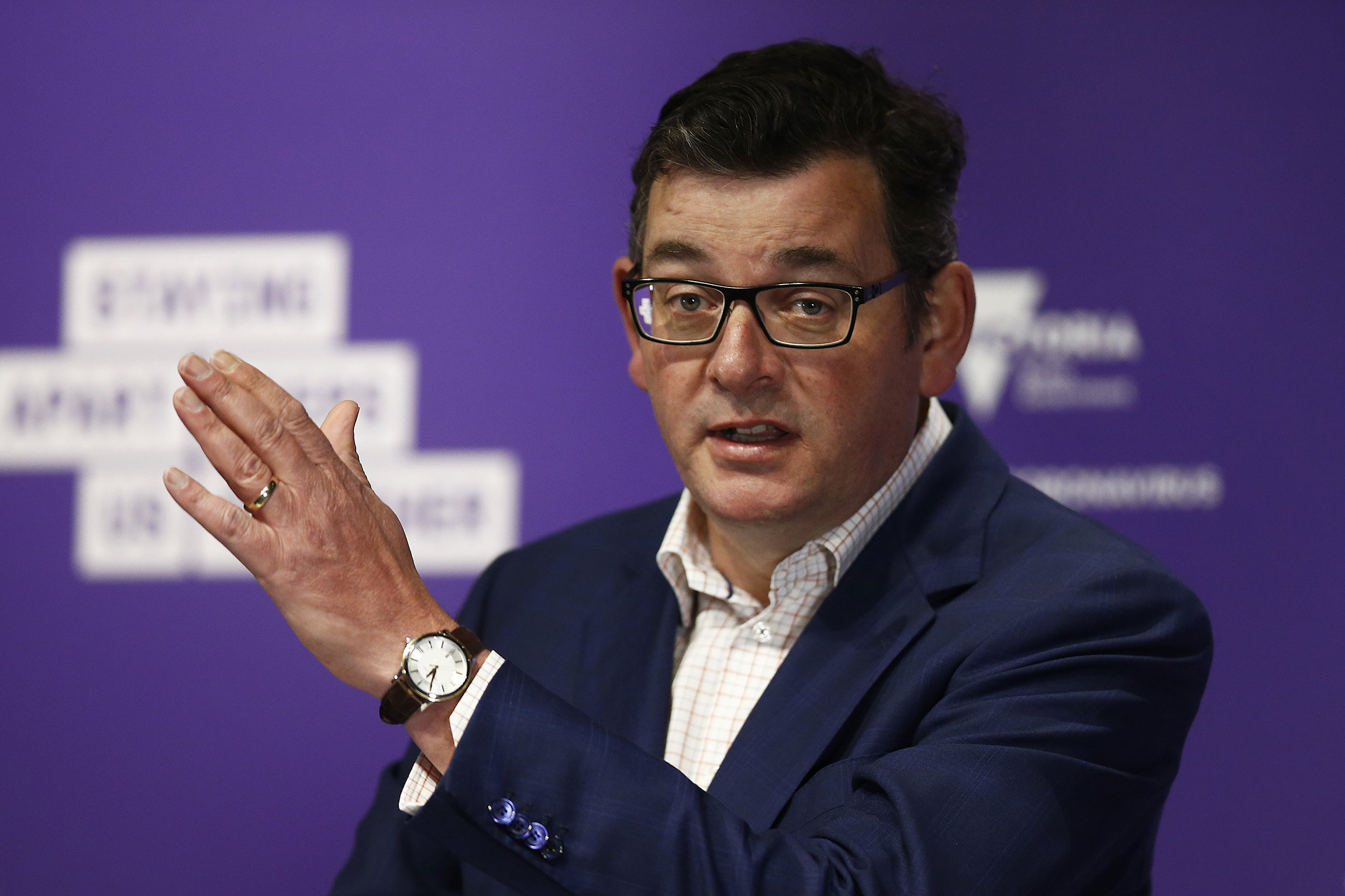 Victorian Premier Daniel Andrews speaks during a news conference on September 14, in Melbourne, Australia. Daniel Pockett/Getty Images
Victorian Premier Daniel Andrews speaks during a news conference on September 14, in Melbourne, Australia. Daniel Pockett/Getty ImagesAustralia's Victoria state recorded 35 new Covid-19 cases on Sunday, according to Victoria's Department of Health and Human Services.
This is the state's lowest daily increase in infections since June 26, according to statistics from the department.
The total number of cases confirmed in Victoria now stands at 19,870. Seven deaths were also recorded on Sunday, bringing the total death toll in the state to 730.
Protests: Over the weekend, anti-lockdown protests were held in Melbourne, leading to the arrest of at least 88 people. Video of the demonstrations showed police in riot gear arresting protesters in the streets while onlookers chanted “freedom.”
On Sunday night, Victoria also began slowly lifting certain coronavirus lockdown restrictions, according to Victorian Premier Daniel Andrews. In Melbourne, playgrounds and outdoor fitness equipment have been reopened, while those living alone or single parents are allowed to have one other person in their home.
Pfizer CEO says there is "a good chance" company will know if a vaccine works by the end of October
From CNN Health’s Naomi Thomas
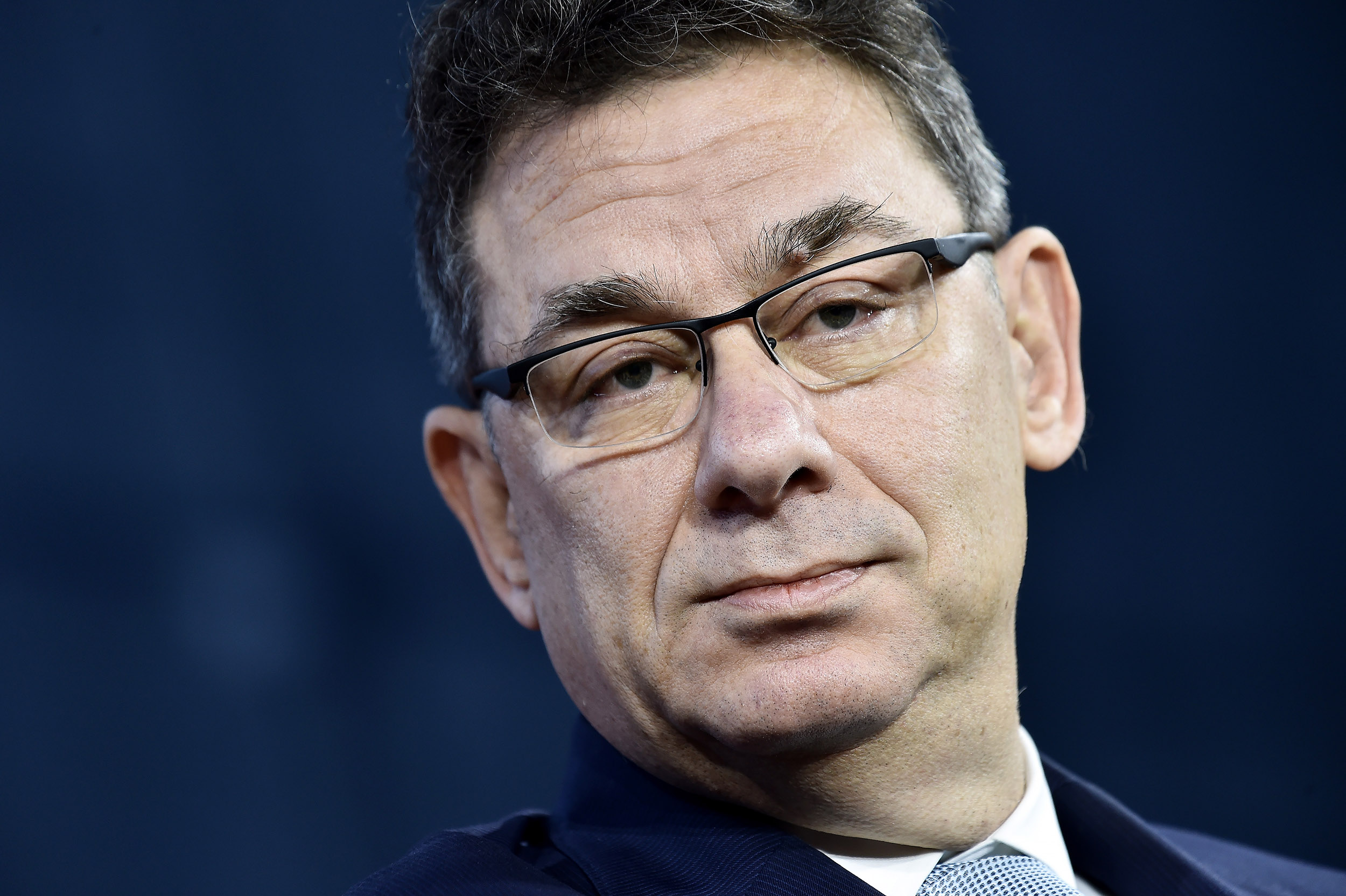 CEO of Pfizer Inc. Albert Bourla, DVM, Ph.D. attends the 2019 Forbes Healthcare Summit at the Jazz at Lincoln Center on December 5, 2019 in New York. Steven Ferdman/Getty Images
CEO of Pfizer Inc. Albert Bourla, DVM, Ph.D. attends the 2019 Forbes Healthcare Summit at the Jazz at Lincoln Center on December 5, 2019 in New York. Steven Ferdman/Getty ImagesPfizer CEO Albert Bourla said there is “quite a good chance” the team testing his company’s vaccine candidate for Covid-19 will know whether it works by the end of October.
When asked whether people would have to wait until 2021 to receive the vaccine, Bourla said that he didn’t know how long it would take for regulators to approve the drug.
“We have a good chance that we will know if the product works by the end of October. Then, of course, it is (the) regulator’s job to issue (a) license or not," he said.
Pfizer has started manufacturing the vaccine and Bourla said hundreds of thousands of doses have already been made.
More details: Bourla said vaccine distribution will be a problem. Shipping medicines is complex, particularly when they need special storage conditions. But he said Pfizer already knows how to do it very well.
As for who gets the vaccine, Bourla said that is something the authorities should decide, for example, the US Centers for Disease Control and Prevention.
WHO reports highest single-day increase in Covid-19 infections since pandemic began
From CNN’s Sharif Paget
The World Health Organization received reports of 307,930 new Covid-19 cases worldwide in the past 24 hours -- the highest single-day increase in global infections since the pandemic began.
The previous daily high was set on September 6, when 306,857 cases were reported.
The total number of cases that have been reported to the WHO from around the globe now stands at 28,637,952.
There were also 5,537 new coronavirus deaths reported to the WHO over the past 24 hours, bringing the global death toll to at least 917,417.
CNN is tracking worldwide coronavirus cases here:
Israel approves second general lockdown as Covid-19 cases surge
From CNN's Oren Liebermann and Amir Tal
Israel approved a second general lockdown on Sunday evening as coronavirus cases surge across the country. The lockdown, which is expected to start Friday afternoon, will see the country return to many of the same severe restrictions of the first lockdown back in April.
Schools, restaurants (except delivery), and entertainment venues will all close, as well as other businesses, for an initial period of three weeks. The public sector will operate with a limited workforce, while private sector businesses can operate as long as non-employees do not enter the workspace.
People will be required to stay within 500 meters of their home. Emergency services, pharmacies and food stores will remain open. Outdoor gatherings will be limited to 20 people, while indoor gatherings will be limited to 10.
Restrictions will be eased once Israel records a sharp decline in infection rates, though no number has been put on what might constitute such a decline.
At a cabinet meeting earlier Sunday, Israeli Prime Minister Benjamin Netanyahu said the country's coronavirus czar had raised "a red flag regarding the ability of the health system to handle the challenges that are upon us, and (thus) the need to take the necessary steps as a result."
By the numbers: Netanyahu announced the lockdown after coronavirus cases surged last week, hitting a new daily high of 4,217 cases in 24 hours on Thursday, the third straight day with more than 4,000 new cases recorded.
The number of patients in serious condition has also steadily climbed, reaching a high of 513 serious cases and 138 on ventilators as of Saturday.

 5 years ago
663
5 years ago
663 